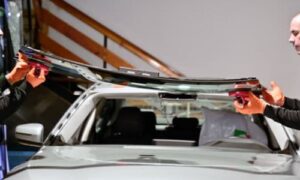Are you planning to buy a used car? It can be daunting, but you can make an informed decision with proper guidance. This article will discuss some tips for buying a used car.
Research
Before you start searching for a used car, do some research. Research the make and model of the vehicle, its features, and the market value. Also, read reviews and ratings to learn about the car’s performance, reliability, and safety. Determine your needs and wants, then look for vehicles that fit your criteria.
Set a Budget
Before you start shopping for a used car, set a budget. Determine how much you can afford to spend on the vehicle, including the down payment, monthly payments, insurance, and maintenance. Stick to your budget and avoid overspending.
Check the Vehicle History Report
When you find a used car you like, check its vehicle history report. The report will show you if the car has been in any accidents, if it has had any significant repairs or recalls, and if there are any liens on the vehicle. You can get the report from Carfax or other websites specializing in vehicle history reports.
Inspect the Car
Before you buy a used car, inspect it thoroughly. Check the exterior for any dents, scratches, or rust. Als,o Check the interior for signs of wear and tear, such as stains, rips, or tears. Check under the hood for any leaks or signs of damage. Also, check the tires, brakes, and suspension.
Take a Test Drive
Before you make a final decision, take a test drive. Test the car on different road conditions, such as highways, city streets, and bumpy roads. Listen for any unusual sounds, such as squeaks or rattles. Also, test the car’s features, such as the air conditioning, sound system, and navigation.
Negotiate the Price
When you are ready to buy the car, negotiate the price. Use your research and the vehicle history report to negotiate a fair price. Also, consider factors such as the condition of the car, the mileage, and any repairs that may be needed. Be prepared to walk away if the seller is not willing to negotiate.
Get an Independent Inspection
Before you finalize the deal, get an independent inspection. Hire a mechanic to inspect the car and provide a written report. This will give you peace of mind and help you avoid any costly surprises down the road.
Finalize the Deal
Once you have agreed on the price and terms, finalize the deal. Sign the paperwork, including the sales contract and the transfer of ownership. Ensure you have all the necessary documents, such as the registration and insurance.
Transfer the Ownership
After you have bought the car, transfer the ownership. Contact your local DMV or licensing agency to transfer the title and registration. Also, update your insurance policy to reflect the new vehicle.
Additional Considerations
When buying a used car, there are some additional considerations to remember. Consider the cost of maintenance and repairs and the resale value. Also, consider the fuel economy and emissions standards. Finally, view the safety features and ratings.
Conclusion
Buying a used car can be an intelligent financial decision but it requires careful planning and research. Use the tips in this article to make an informed decision and find a car that fits your needs and budget. Inspect the vehicle thoroughly, take a test drive, and negotiate a fair price. Also, get an independent inspection and transfer the ownership once you have finalized the deal.
FAQs
- Is buying a used car from a dealership or a private seller better?
- It depends on your preferences and priorities. A dealership may offer more options and financing options, but a private seller may show a lower price. Whichever you choose, make sure to do your research and inspect the car thoroughly.
- How important is a vehicle history report when buying a used car?
- A vehicle history report is crucial when buying a used car. It will provide important information about the car’s history, such as accidents, repairs, and recalls. This will help you make an informed decision and avoid any costly surprises down the road.
- What should I look for when inspecting a used car?
- When inspecting a used car, look for any signs of damage or wear and tear, both inside and outside. Check the tires, brakes, suspension, and under-the-hood for leaks or damage. Take a test drive and listen for any unusual sounds.
- Can I negotiate the price of a used car?
- Yes, you can and should negotiate the price of a used car. Use your research and the vehicle history report to negotiate a fair price based on the car’s condition, mileage, and any repairs that may be needed.
- How do I transfer the ownership of a used car?
- To transfer the ownership of a used car, contact your local DMV or licensing agency to transfer the title and registration. Ensure you have all the necessary documents, such as the sales contract and insurance policy, and update your insurance policy to reflect the new vehicle.



